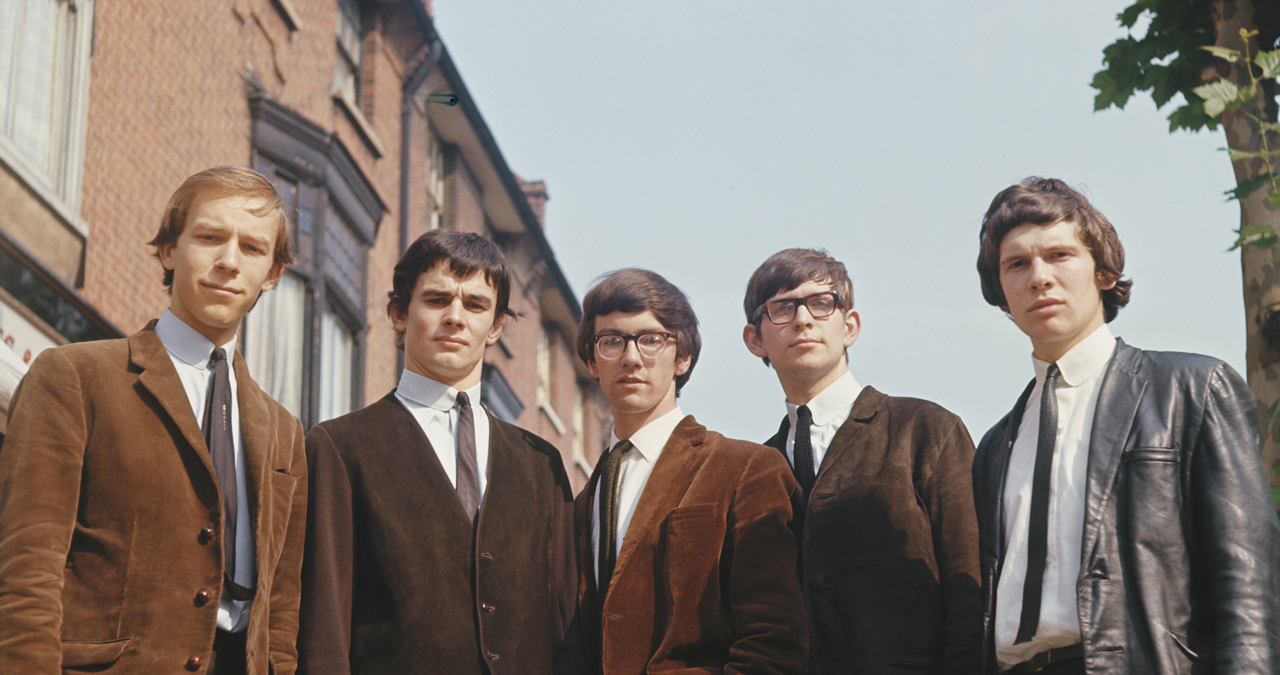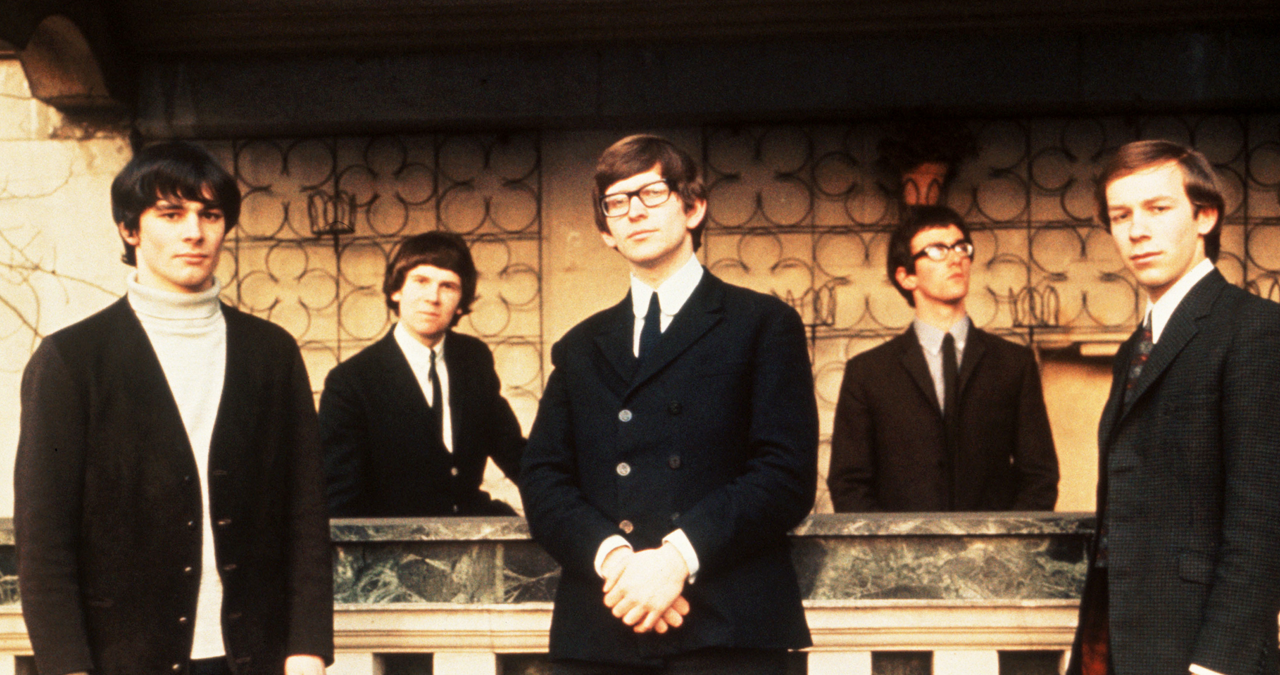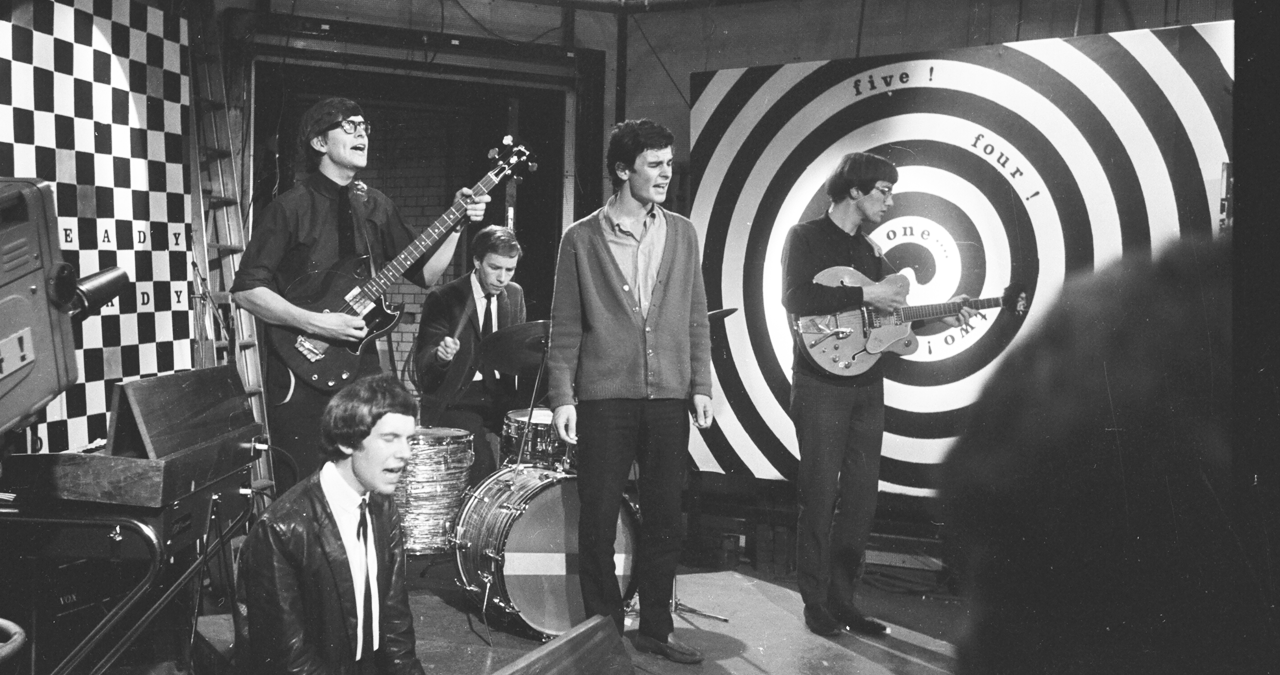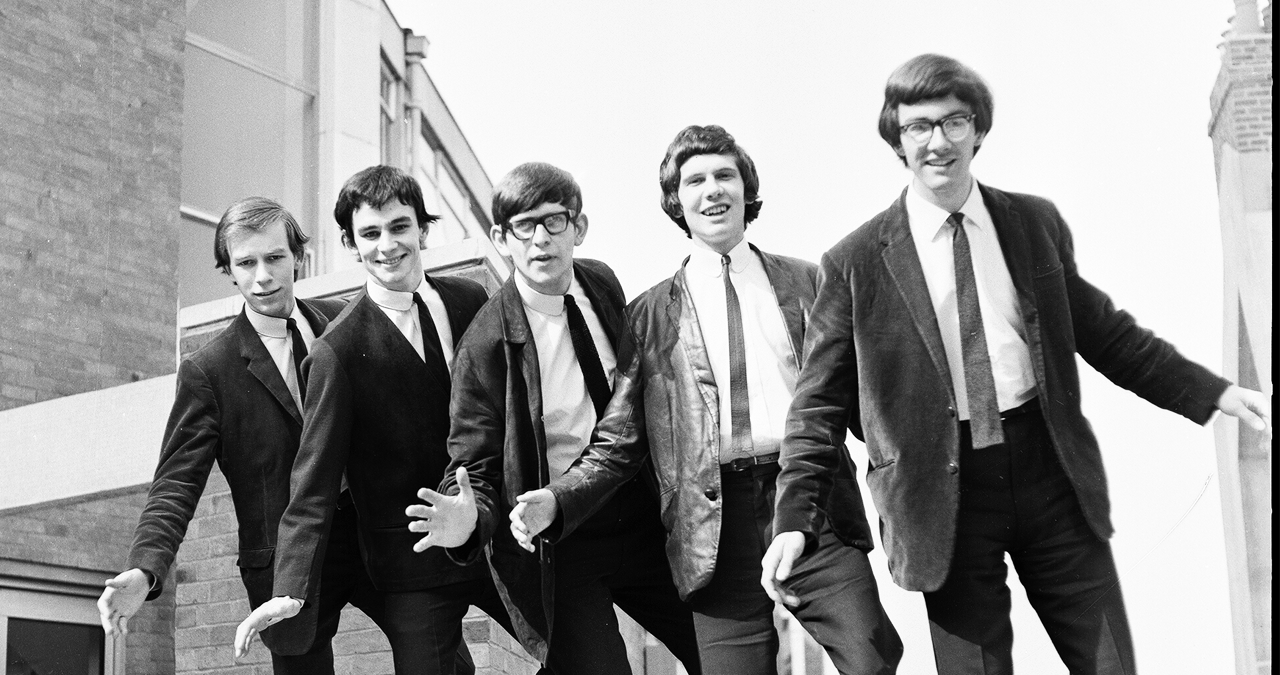“An irate fan pulled a gun on them in their dressing room. They stopped using our name immediately”: How a fake version of a popular British band managed to deceive American fans
The odd tale of how a counterfeit version of the Zombies capitalised on the group's US success after the original band called it quits

Want all the hottest music and gear news, reviews, deals, features and more, direct to your inbox? Sign up here.
You are now subscribed
Your newsletter sign-up was successful
The notion of fake bands has been a hot topic of conversation in recent months. There’s been a rise in AI-driven, aural likenesses of real artists, and an increasing glut of algorithmically-generated tracks being framed as the work of ‘new’ bands. It seems, in 2025, that the space between the music we listen to and knowing exactly who is behind it seems to be widening.
It's a very modern concern, you might think, but ‘fake’ versions of bands are actually nothing new.
In fact, back in the late 1960s, many unwitting concert goers eagerly bought tickets to go and see hit-making British psychedelic rockers the Zombies at venues across the United States. Then, seemingly on the rise with the chart success of their latest single. But, although the players on-stage were clearly talented musicians, they certainly were not the band they had been advertised as.
Just how was that allowed to happen, and how did this 'fake' band get away with it?
The story begins with the original Zombies themselves.
Founded in St Albans, England in 1961, the five-piece group, led by gifted songwriter and keyboardist Rod Argent and dynamic vocalist Colin Blunstone, had a natural creative chemistry.
Naming themselves 'the Zombies', the group soon bested an array of other beat combos at a London talent contest. Before long they were sniffed out by Decca Records. Struck by the troupe’s innovative approach to song-craft, the Zombies were promptly signed.
Their hazy aesthetic seemed to prefigure the bucolic, halcyon summers of the approaching era of cultural change.
America, then firmly in thrall to anglo-centric fare after the arrival of the Beatles, would also soon become besotted.
The Zombies’ audacious debut single She’s Not There entered the US Billboard charts at number 2, while follow-up Tell Her No also sat comfortably in the US top ten. An impressive start.
Want all the hottest music and gear news, reviews, deals, features and more, direct to your inbox? Sign up here.
On home soil, however, chart performances were strong but didn’t quite match their unexpected stateside interest.
It was an unusual (and you’d think pretty positive) state of affairs. After all success in the US was a much grander objective than making it in Britain.

First studio album Begin Here (titled The Zombies in the US) was released in April 1965, yet the group was beginning to find it hard to really gain traction. Following the recording and release of their (superb) follow-up Odessey and Oracle, the Zombies’ star was on the wane.
Rod Argent (who went on to form the equally successful Argent) reflected on that period in an interview with NPR; “We only judged things by the way things were in the UK. It led to was a situation where basically our income was mostly defined by our UK gigs," Argent said.
Although, as songwriters Rod and bassist Chris White were financially ok, the other band members were struggling. “The other guys were pretty much by the end living hand to mouth, and they had to make decisions. That's one of the reasons we broke up.”
“When The Zombies finished the three non-writers were absolutely broke and all three of us had to quickly get a job,” recalled singer Colin Blunstone in an interview with Psychedelic Baby Magazine.
“I simply phoned an employment agency and it happened they had a vacancy in a big London insurance company. It was a very busy company and fortunately the intensity of the work didn’t allow me to dwell on the sadness of losing the band. In fact I was so devastated by the ending of the band that I wasn’t sure I ever wanted to return to the music business.”
But, as Colin got settled into a second life behind a desk, and the other Zombie’ boys took their trains back into obscurity, over the in US something utterly unanticipated was happening.
The group’s last single, Time of the Season, had unsurprisingly stalled in the UK charts upon its release in September 1967 (another signifier that the hour to call it quits was nigh). But, oddly, the song had begun to gain momentum over in America after US label Date Records opted to release it as a last-ditch attempt to garner some sales.
Nobody expected it to do anything. But against all expectations, the Zombies were rising from their proverbial graves.
With little official promotion (save the genuine, giddy love of radio DJs) Time of the Season reached number three in the US charts and even managed to top the chart in Canada.
Record buyers were completely oblivious to the fact that the star singing the song was, by now, sat behind a desk, phone in hand, and working for an insurance firm…
At first, Blunstone, Argent and the other members were unaware of this miraculous plot twist.
Eventually they caught on to its success, and started to ponder whether their decision to call it quits might have been a little rash. "News did get to us more slowly in those days,” Colin told CBC. "We did know it was picking up radio play, but there was no band. It was recorded in '67, released in North America in '68, and Time of the Season wasn't a hit till '69.”
Though a lucrative offer to reform to capitalise on the single's prosperity was forthcoming, the original members decided to let it be. “It did not feel right just to chase the buck and abandon everything else,” said Rod Argent.
Over in Bay City, Michigan, band management and promotion outfit Delta Promotions had been enlisted to promote a tranche of British acts on the touring circuit - and take a sizeable slice of the pie. The erstwhile Zombies were one such act.
Ran by Bill Kehoe and Jim Atherton, the two shrewd players noticed a financial opportunity in the void left by the band they had been tasked with selling.
As former Delta Promotions employee Tom Hocott recalled in a lengthy and authoritative Buzzfeed investigative piece about Delta, the enterprise started out with good intentions. “I remember it starting out pretty legitimate. Then Kehoe and Atherton started telling me that they’d acquired the rights to the music and the names of these bigger bands like the Zombies and the Animals … I knew it was probably bullshit but I guess I didn’t care. I was happy to be working in music.”
With increased demand from promoters and venues to arrange for the enigmatic act behind the recent hit to come to their venues and play, it seemed like a no-brainer to give them something.
The pair hatched an insidious plan.
Kehoe and Atherton assembled a bunch of local musicians and, after a bit of refinement, shaped them into a fabricated version of the Zombies.
These four men would, for all intents and purposes, be the Zombies.
Tickets would be sold for their live appearances off the back of the success of Time of the Season. After all, in that pre-internet age, how would anybody know what the original members themselves looked like?

Of course, the band were fake in all but name. For the con to work, they had to still be hot players.
Amongst the number of local musicians reeled in for the scam were - surprisingly - future ZZ Top co-founders Frank Beard and Dusty Hill on drums and bass respectively. Other eager young musicians signing up to take on a role were guitarists Mark Ramsey and Seab Meador.
Although obviously aware that they weren’t the Zombies, it does seem like these musicians too were being taken for a ride on the legality of the whole venture.
"I was told [the Zombies] didn't exist - that they were only a studio sound," Mark Ramsey recalled in the Buzzfeed piece. "I was just excited and flattered. I'd only been playing for a few years and the other guys were pro-level at that point. I didn't look at it as anything more than a chance to have some fun, hang out with some cool guys, learn some songs, go somewhere outside of this Hillbillyville, and earn a little money."
Little did Ramsey know that his unscrupulous managers were banking on naive youngsters excitedly buying tickets, and naturally assuming the advertised Zombies were that same band who'd written and performed the hit they loved.
But they very much weren't.
Some of the more attentive fans had been aware enough to note that the Zombies behind the recorded output were a five-piece outfit.
So when the fraudulent four-piece were asked where the keyboard player was, the group would mock-jokingly reply ‘Oh, he’s been arrested, and is sitting in jail in Dallas’.
Initially, the shady enterprise paid off, at least for the avaricious Kehoe and Atherton.
As the fake Zombies toured across North America to ever-crowded venues, Delta took home sizeable profits, while the band members themselves were paid a pittance.
“I was making $200 a week and it wasn’t like we’d play a night and then get a few days off. They had us playing shows every single night,” Ramsey told Buzzfeed.
Satisfied that they'd landed on a surefire way of profiteering from the ruins of defunct bands, the emboldened Delta also rustled up facsimile versions of other high-status groups, the Animals and (cartoon band we might add…) the Archies.
The pair even got so ballsy as to put out a second version of the Zombies. This second group were, by all accounts, even better than the first.
“They were so damn good," Hocott told Buzzfeed. "They were the perfect Zombies. If you heard them play Time of the Season you couldn’t tell the difference.”
Before long, some journalists begun to have their suspicions.
Upon being quizzed, Bill Kehoe stated that the reason that the band sounded quite different from what you might expect was because,“The lead singer of the Zombies was killed and two other guys left.” Kehoe would, according to the Buzzfeed investigation, regularly supply DJs and promoters with signed affidavits claiming that his bands featured original members.

Eventually the facade began to crumble. The members of the (original) fake Zombies group had taken to adopting cod-British accents, but these often gave way. The songs being performed were often very different to songs that the Zombies actually wrote and had in their repertoire too.
Inevitably, word got back to the actual members of the actual band themselves that, while they toiled away back in the humdrum world of work, imposters were benefiting from their former glory.
The Zombies’ bass guitarist and co-songwriter Chris White was rightly incensed when he found out. Not knowing the best course of action, he'd regularly call US radio stations and promoters, trying to warn listeners of the scam.
Unfortunately White's attempts often fell on deaf ears, as DJs suspected White himself might be a fraud.
Eventually, it took the quite dramatic response of the Animals’ Eric Burdon to halt Delta’s scheme.
Upon finding out about his own group's profiteering clones, Burdon headed over to one of Delta’s phoney Animals gigs and, armed with a baseball bat and backed by a clan of bikers, managed to ‘dissuade’ the group from playing that night.
Realising they were a little in over their heads, and things could get pretty, and violently, serious, Delta Productions pulled the plug on their fake band campaign.
Shortly afterward, after unrelenting pressure from the bands that had been copycatted, the game was up, and Delta disintegrated.
However, for some reason, it seemed like the Zombies would continue to be blighted by imitators, with several other outfits claiming the band’s legacy for themselves.
Perhaps put together in the wake of Delta’s ‘success’ with the Zombies con, these fake versions would often continue playing to blissfully unaware audiences across the United States well into the 1990s.
One real Zombies’ fan took matters into his own hands…
“Every now and then someone will tell us they saw The Zombies after 1967 and before 1999 and of course we know they really saw a different band,” Blunstone, who rejoined the original Zombies’ line-up in the early 2000s told Music Defined. “There was another band touring as The Zombies in the '90s and so the story goes because of their poor performance an irate fan pulled a gun on them in their dressing room. They stopped using our name immediately.”
Rod Argent had more detail about that tense moment; “There was one story where this band was going around making money and they were pretty terrible," Argent told Culture Sonar. "This guy in the audience got very frustrated and he went into the dressing room afterward, confronted the drummer, and said, ‘You’re not Hugh Grundy.’ (the actual Zombies’ drummer). The phoney responded, ‘Oh, yes I am.’ The first guy replied, ‘Listen, you’re not Hugh Grundy!’ And he pulled out a gun and pointed it at him. And the guy said, ‘Okay, okay. I’m not! And we won’t play again.’ That was the end of those fake Zombies apparently.”
While that initial Delta Promotions scheme hinged on deception, for Colin Blunstone, no ill will was harboured toward the young musicians that made up the fake version of his band. Two of whom, after all, went on to have a fruitful career as part of one of rock's biggest outfits.
“I'm not going to come down too hard on anybody who filled the vacuum. I want musicians to be able to work, and that got some guys out on the road, so good luck to them,” he told CBC.” Hopefully, it helped pave the way to the huge success [Frank Beard and Dusty Hill] had later on [in ZZ Top]. I’d be more concerned with them not being very good. If they were good, even better than us, I could quite get into that I think."

I'm Andy, the Music-Making Ed here at MusicRadar. My work explores both the inner-workings of how music is made, and frequently digs into the history and development of popular music.
Previously the editor of Computer Music, my career has included editing MusicTech magazine and website and writing about music-making and listening for titles such as NME, Classic Pop, Audio Media International, Guitar.com and Uncut.
When I'm not writing about music, I'm making it. I release tracks under the name ALP.
You must confirm your public display name before commenting
Please logout and then login again, you will then be prompted to enter your display name.
